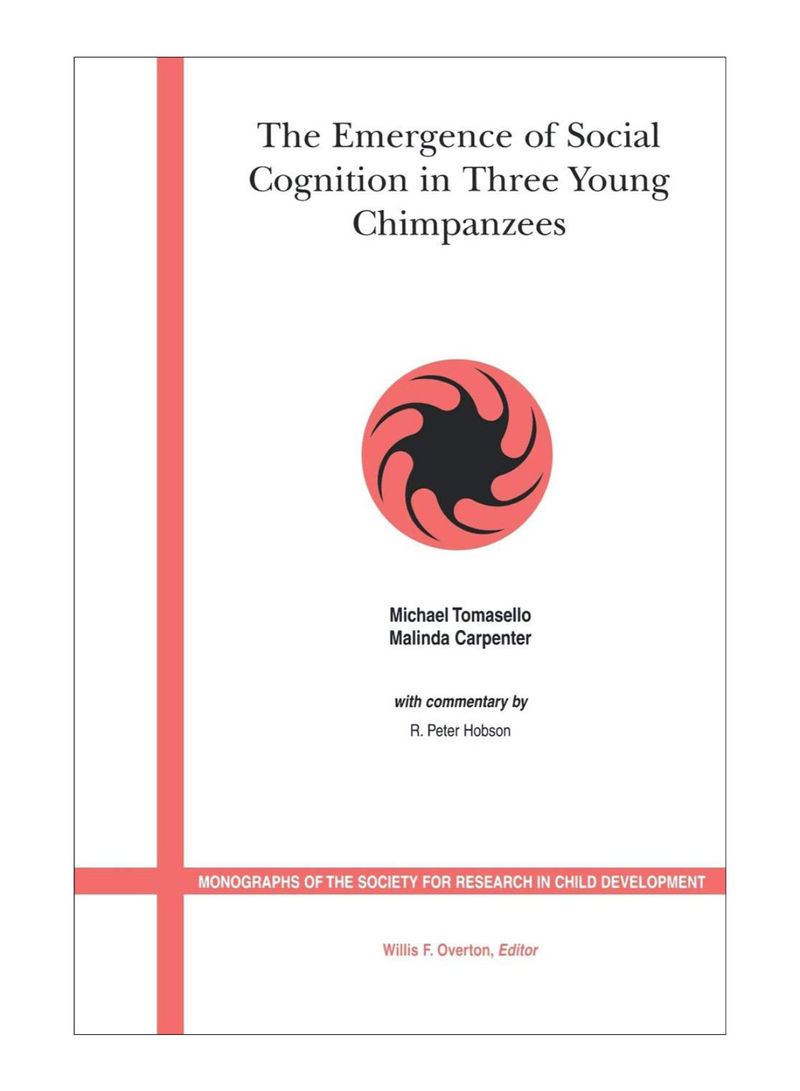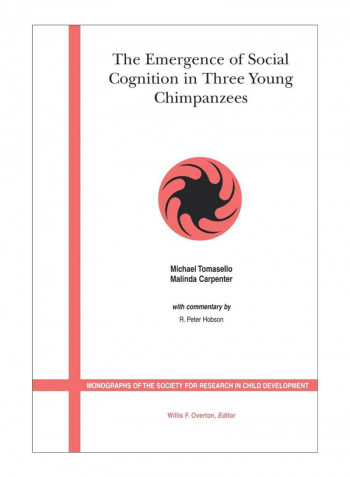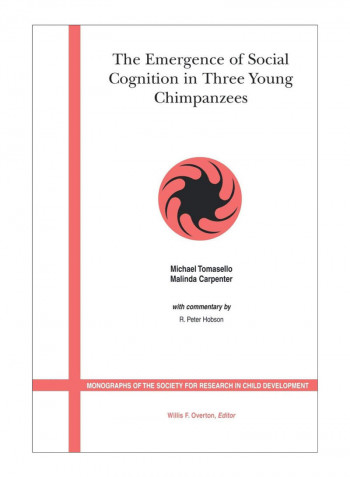The Emergence Of Social Cognition In Three Young Chimpanzees Paperback
Recommend
Sort by
Rating
Date
Specifications
Author 1
Michael Tomasello
Book Description
This Monograph reports a series of ten studies on the social-cognitive abilities of three young chimpanzees, ages to four years. * Compares outcomes to similar studies conducted on human infacts for a comparative understanding. * Looks at chimpanzees' abilities to understand and imitate goal-directed actions. * Results suggest that the ontogeny of human social cognition comprises two relatively distinct trajectories: one for understanding intentional action and perception, common to all apes, and another for sharing psychological states with others in collaborative acts involving joint intentions and attentions, unique to the human species.
ISBN-10
1405147261
ISBN-13
9781405147262
Language
English
Publisher
John Wiley & Sons
Publication Date
1-Mar-2005
Number of Pages
168
About the Author
Michael Tomasello (Ph.D., 1980, Psychology, University of Georgia) taught at Emory University and worked at Yerkes Primate Center from 1980 to 1998. Since 1998, he is Co-Director at the Max Planck Institute for Evolutionary Anthropology, Leipzig, Germany. Research interests focus on processes of social cognition, social learning, and communication and language in human children and great apes. Books include Primate Cognition (w/J. Call, Oxford University Press, 1997), The Cultural Origins of Human Cognition (Harvard University Press, 1999), and Constructing a Language: A Usage-Based Theory of Language Acquisition (Harvard University Press, 2003). Malinda Carpenter (Ph.D., 1995, Psychology, Emory University) currently is a member of the scientific staff of the Department of Developmental and Comparative Psychology at the Max Planck Institute for Evolutionary Anthropology. Her research interests include imitation and other types of social learning, infants' understanding of intentions and other mental states, and joint attention and other early social-cognitive skills. She has worked with typically developing infants and young children, young children with autism, and apes. R. Peter Hobson (Ph.D., 1989, FRCPsych, CPsychol) is Tavistock Professor of Developmental Psychopathology in the University of London. He is an experimental psychologist and psychiatrist (and psychoanalyst), trained at Cambridge University and the Maudsley Hospital, London, and now at the Tavistock Clinic, London and the Institute of Child Health, University College, London. His primary research interest is the contribution of social relations to early cognitive as well as social development. His principal fields of study are early childhood autism, congenital blindness, mother-infant relations, and adult borderline personality disorder. His first book was entitled Autism and the development of mind (Erlbaum, 1993), and his second more accessible and wide-ranging book is called The Cradle of Thought (Oxford University Press, 2004).



